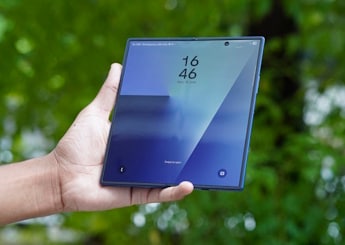- Home
- Mobiles
- Mobiles News
- Semiconductor Body ESIA Calls for EU 'Chips Envoy', More Support
Semiconductor Body ESIA Calls for EU 'Chips Envoy', More Support
The first EU Chips Act, rolled out in April 2023, was billed as a EUR 43 billion (roughly Rs. 3,84,850 crore) subsidy plan.

Photo Credit: Reuters
The group represents chipmakers Infineon, STMicroelectronics, and NXP among others
Europe's main computer chip industry group ESIA called on the European Union on Monday to speed up aid, draw up a revamped "Chips Act 2.0" support package and name an envoy to champion the sector.
In a statement, the group said chip policy under the incoming EU Commission should feature fewer export restrictions, focus on areas where European companies already had advantages, and that aid should be awarded more quickly.
"A dedicated 'Chips Envoy' responsible for the overall industrial policy approach to semiconductors is a necessity," it said.
The group - which represents chipmakers Infineon, STMicroelectronics, NXP, top equipment maker ASML and research bodies imec, Fraunhofer and CEA-Leti - said the bloc should roll out an "immediate Chips Act 2.0".
The first EU Chips Act, rolled out in April 2023, was billed as a EUR 43 billion (roughly Rs. 3,84,850 crore) subsidy plan aimed at boosting Europe's share of the global chip market to 20 percent by 2030.
A recent critical review by German think-tank interface found that while Europe may not be on track to meet that goal set by Commission industry chief Thierry Breton, and has not had 15 percent of the global market over the past 40 years, the first Chips Act did focus policymakers' attention on the industry.
Major projects under the first Chips Act included a EUR 10 billion euro (roughly Rs. 89,500 crore) plant that Taiwan's TSMC broke ground on last month in Dresden, and a EUR 30 billion (roughly Rs. 2,68,500 crore) project planned by Intel in Magdeburg, Germany.
However amid Intel's business woes, the Magdeburg project has yet to win EU approval for aid and it has been delayed, raising questions as to whether it will be built.
On export policy, ESIA said that it acknowledges the need to protect technology and ensure security.
However, "a more positive approach to economic security is required which is based on support and incentives, rather than a defensive approach that relies on restrictive and protective measures," it said.
ASML has been barred from shipping the upper half of its product range to customers in China as the European Union and Netherlands aligned with US-led restrictions aimed at slowing Chinese technological and military advances.
Dutch prime minister Dick Schoof on Friday said his government will weigh ASML's economic interests when it further tightens rules restricting exports to China.
© Thomson Reuters 2024
(This story has not been edited by NDTV staff and is auto-generated from a syndicated feed.)
Catch the latest from the Consumer Electronics Show on Gadgets 360, at our CES 2026 hub.
Related Stories
- Samsung Galaxy Unpacked 2025
- ChatGPT
- Redmi Note 14 Pro+
- iPhone 16
- Apple Vision Pro
- Oneplus 12
- OnePlus Nord CE 3 Lite 5G
- iPhone 13
- Xiaomi 14 Pro
- Oppo Find N3
- Tecno Spark Go (2023)
- Realme V30
- Best Phones Under 25000
- Samsung Galaxy S24 Series
- Cryptocurrency
- iQoo 12
- Samsung Galaxy S24 Ultra
- Giottus
- Samsung Galaxy Z Flip 5
- Apple 'Scary Fast'
- Housefull 5
- GoPro Hero 12 Black Review
- Invincible Season 2
- JioGlass
- HD Ready TV
- Laptop Under 50000
- Smartwatch Under 10000
- Latest Mobile Phones
- Compare Phones
- Infinix Note Edge
- Lava Blaze Duo 3
- Tecno Spark Go 3
- iQOO Z11 Turbo
- OPPO A6c
- Samsung Galaxy A07 5G
- Vivo Y500i
- OnePlus Turbo 6V
- Lenovo Yoga Slim 7x (2025)
- Lenovo Yoga Slim 7a
- Lenovo Idea Tab Plus
- Realme Pad 3
- Garmin Quatix 8 Pro
- NoiseFit Pro 6R
- Haier H5E Series
- Acerpure Nitro Z Series 100-inch QLED TV
- Asus ROG Ally
- Nintendo Switch Lite
- Haier 1.6 Ton 5 Star Inverter Split AC (HSU19G-MZAID5BN-INV)
- Haier 1.6 Ton 5 Star Inverter Split AC (HSU19G-MZAIM5BN-INV)







![[Sponsored] Haier C90 OLED TV | Dolby Vision IQ, 144Hz OLED and Google TV in Action](https://www.gadgets360.com/static/mobile/images/spacer.png)









